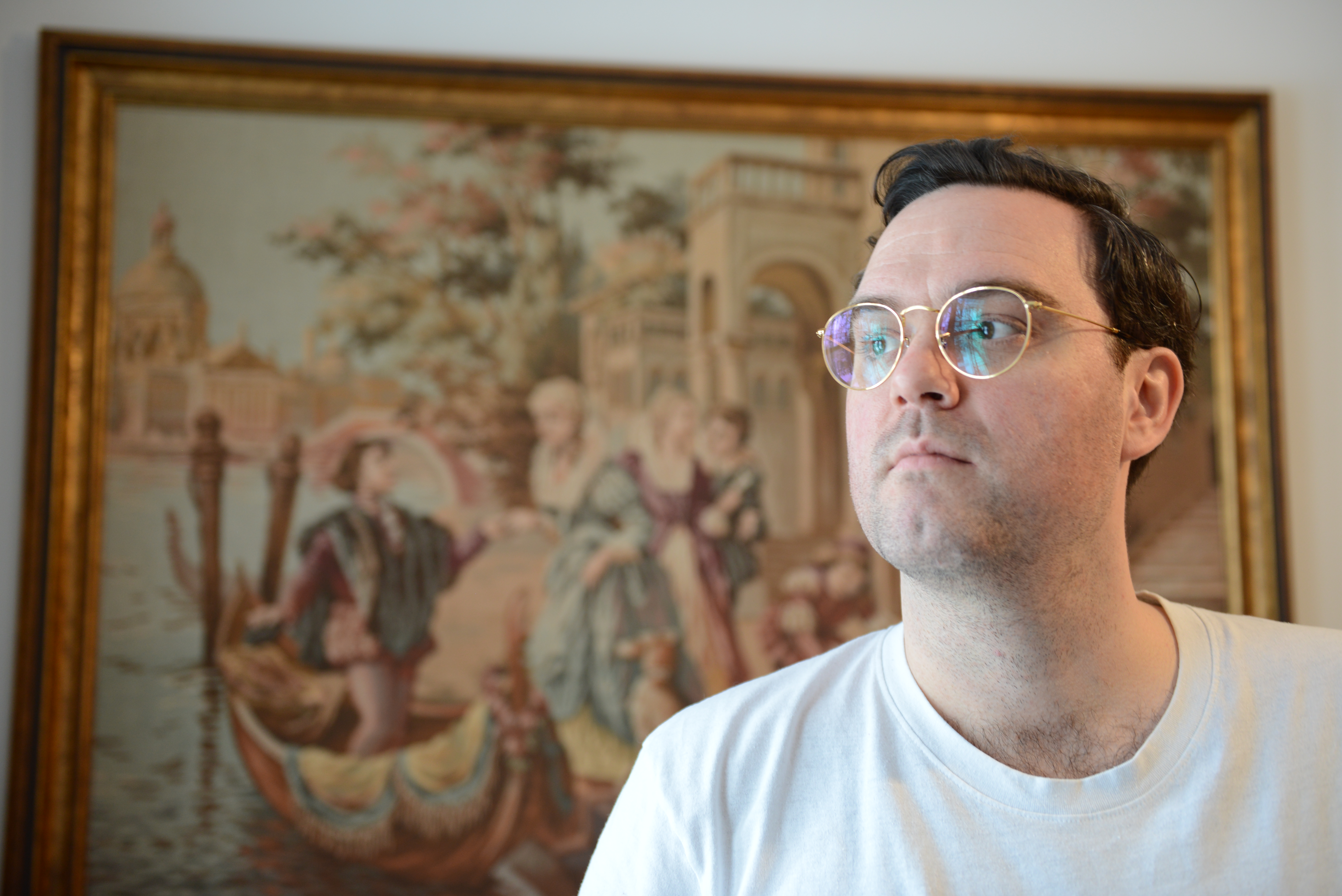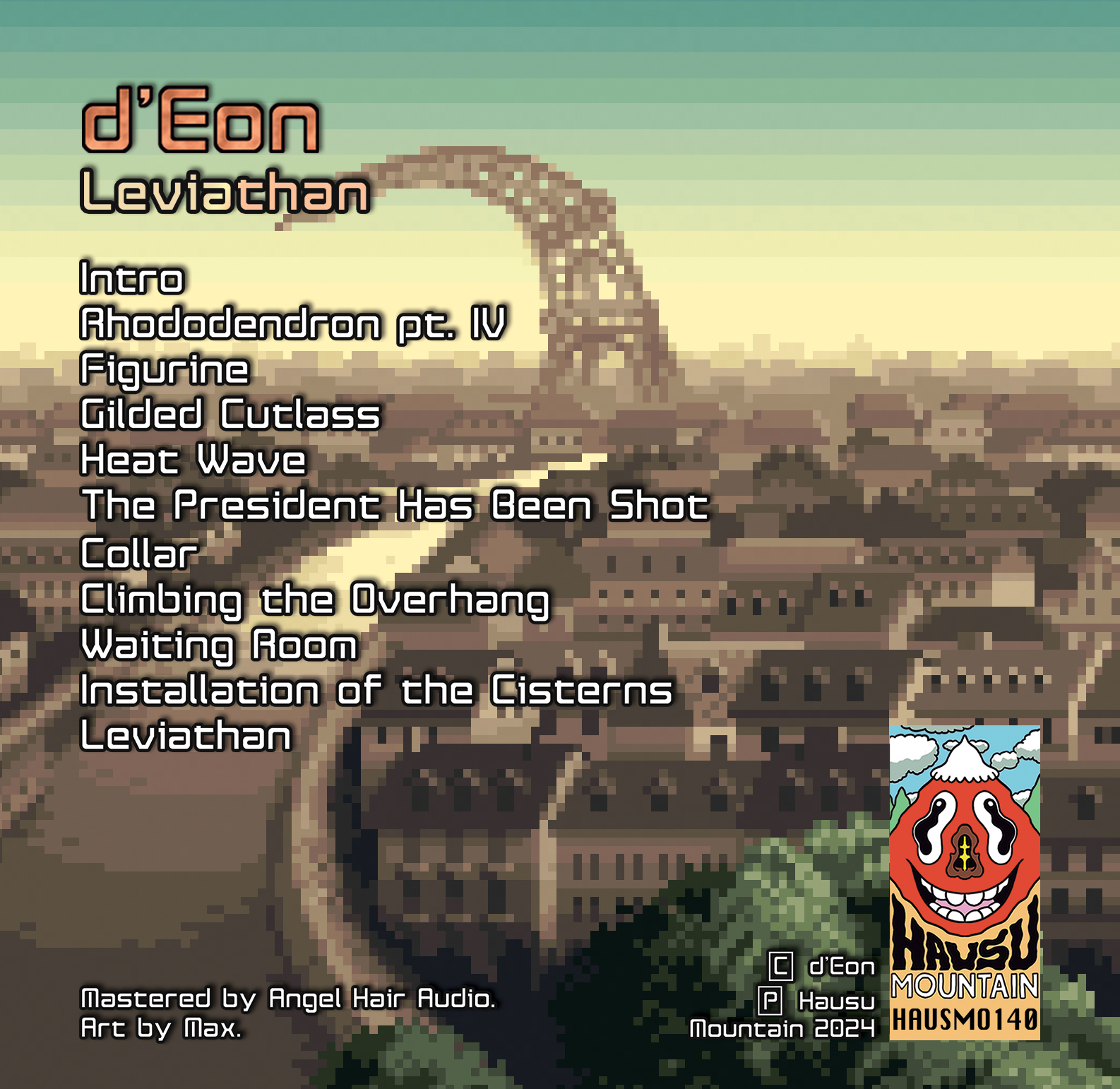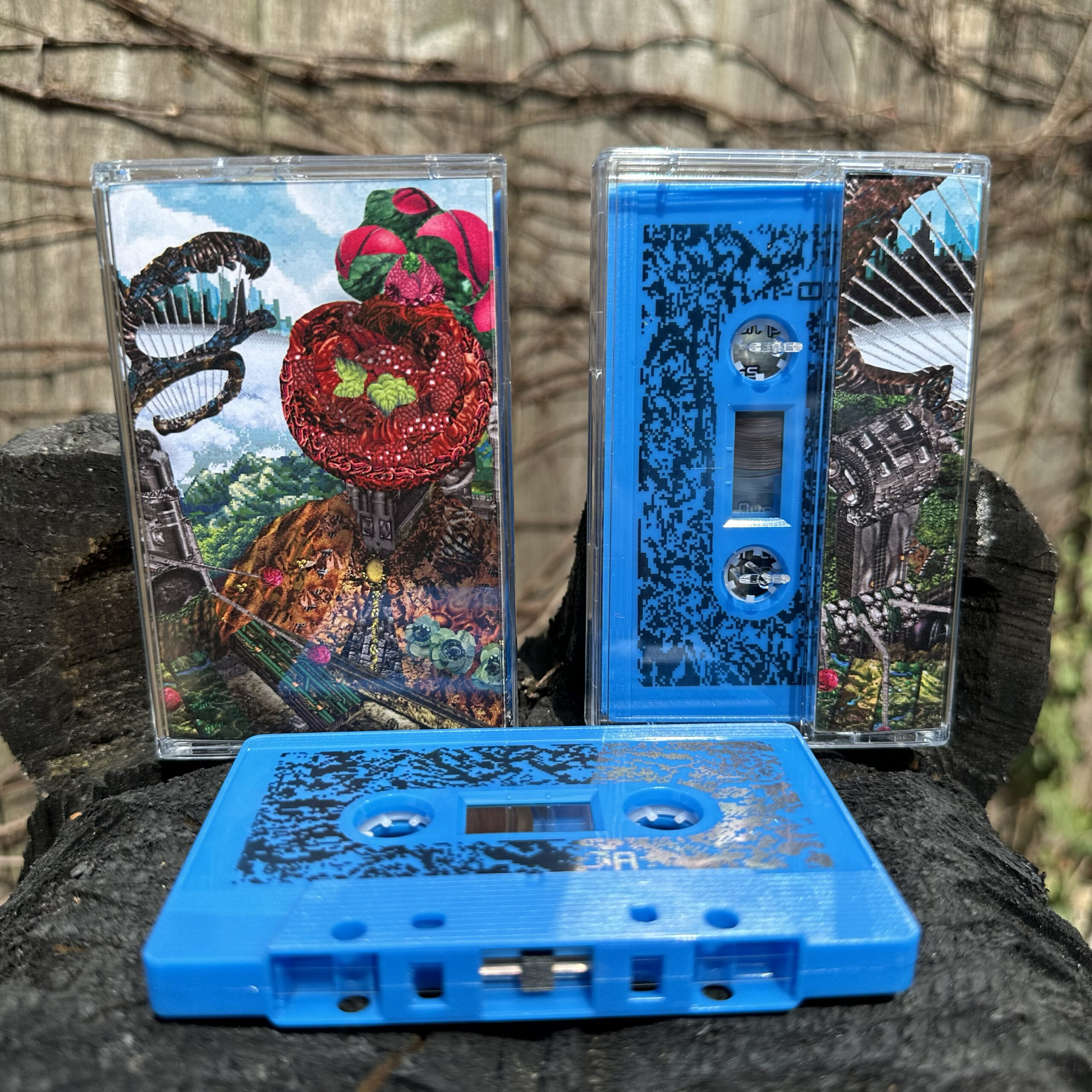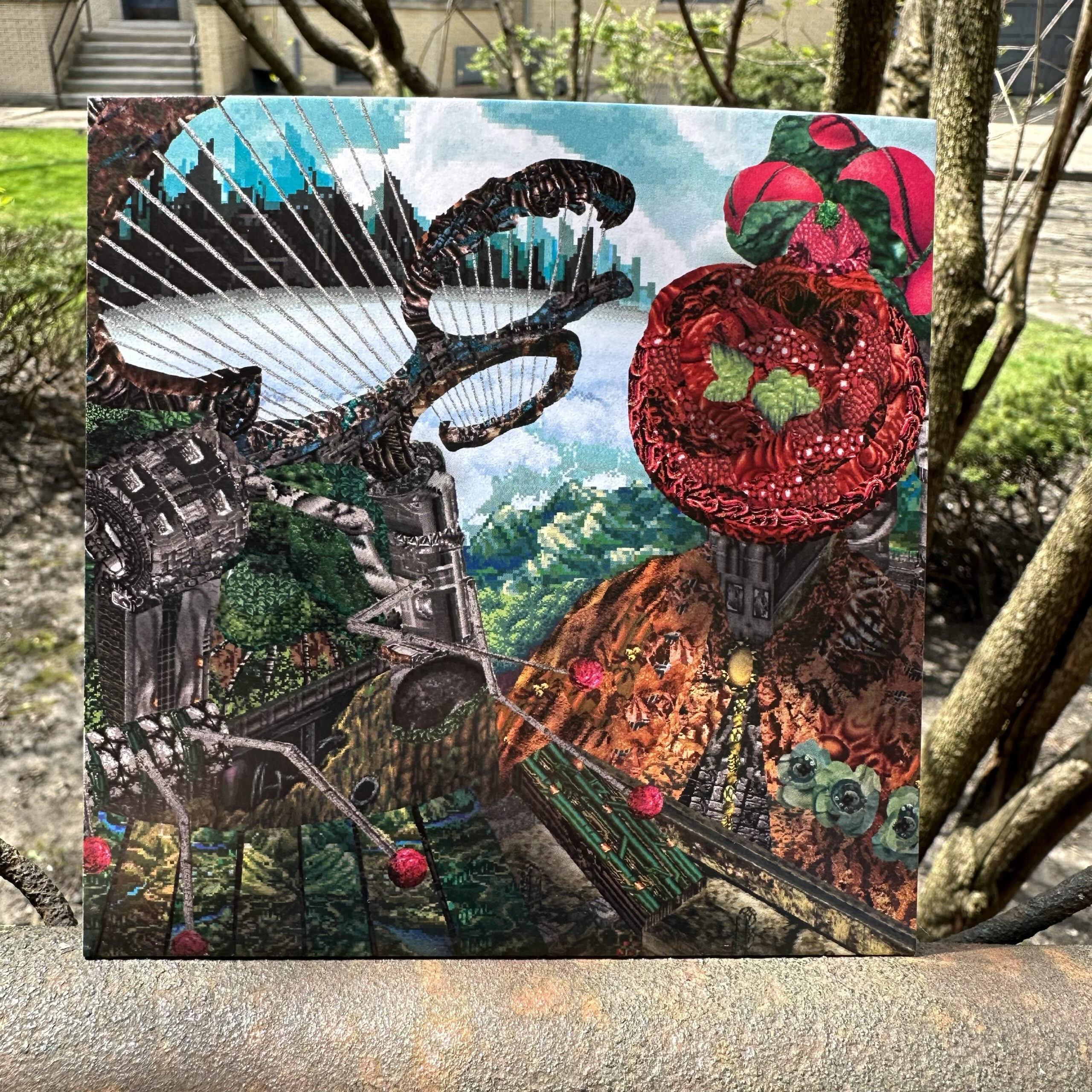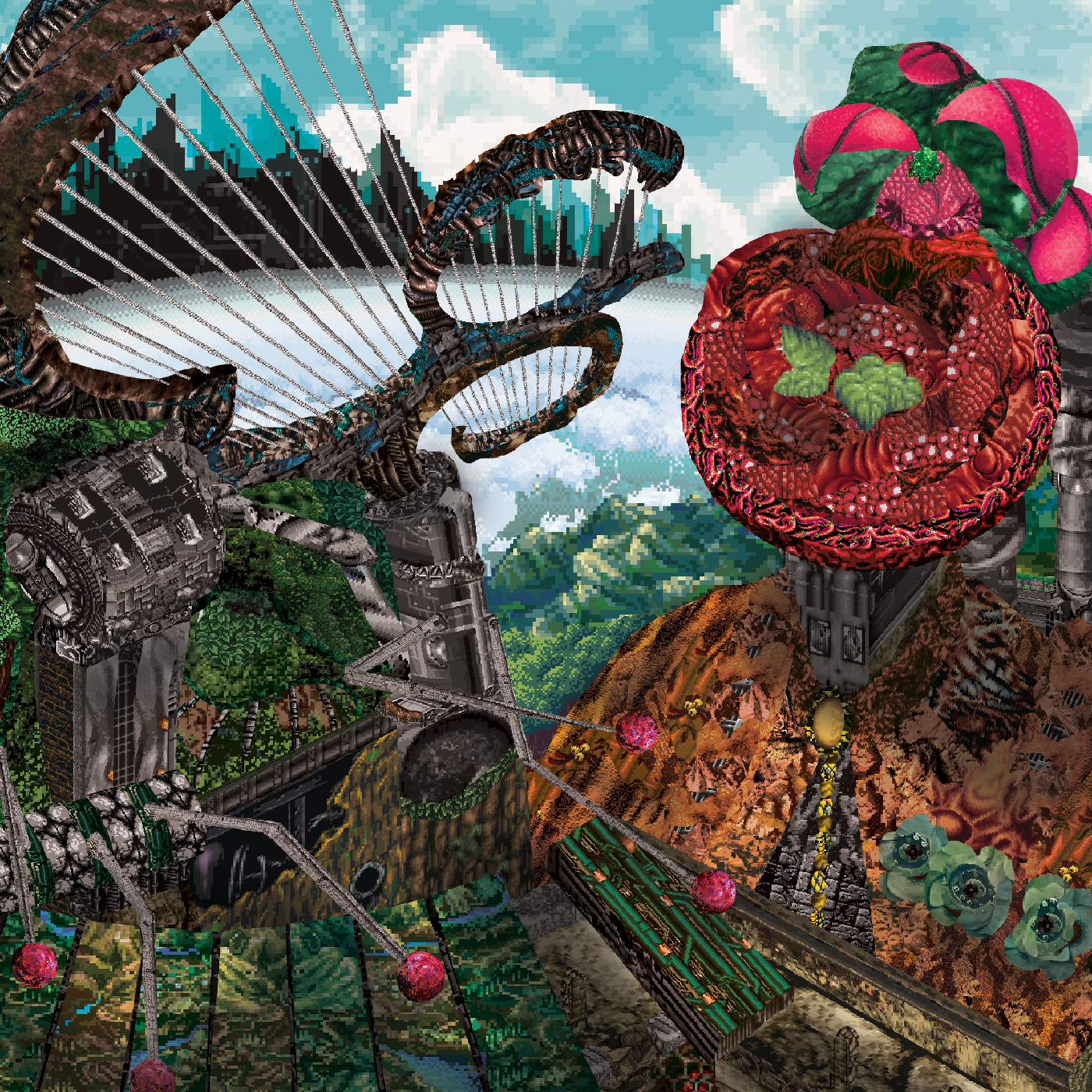 To be released on CD, cassette, and digitally on June 21st, 2024. CD packaged in a mini LP jacket. C46 – blue cassette with black imprints and artwork by HausMo Max. This is the catalog page with album information and artwork. To purchase, head to our Bandcamp page.
To be released on CD, cassette, and digitally on June 21st, 2024. CD packaged in a mini LP jacket. C46 – blue cassette with black imprints and artwork by HausMo Max. This is the catalog page with album information and artwork. To purchase, head to our Bandcamp page.
Montreal-based composer / producer Chris d’Eon makes music under the moniker d’Eon. Since beginning his musical practice in the late ’00s, his unclassifiable catalog has presented us with baroque keyboard performances, hi-definition beatmaking in the pop and R&B idioms, glitchy abstractions composed with chance operations and digital hyper-fragmentation tactics, and all manner of experiments that attest to his drive to reach the outer limits of eclectic composition. d’Eon is perhaps best known for his releases on the dearly missed experimental electronic label Hippos in Tanks, including entries in his Music For Keyboards series and a split EP with Grimes called Darkbloom in 2011, which planted his post-classical minimalist works along an influential cultural spectrum with friends and labelmates such as James Ferraro, Arca, Dean Blunt, Laurel Halo, and Oneohtrix Point Never. Leviathan, d’Eon’s second release on Hausu Mountain, follows 2021’s Rhododendron (HAUSMO121), continuing his triumphant return to pressing music on physical formats after several years of digital-only releases. With his ongoing focus on ornately composed digital chamber music that highlights synthetic orchestral tones and cascades of complex melodicism, Leviathan offers us an evolution of the forms explored on Rhododendron and Music for Keyboards Vol. 3 and 4 while leading us onward into untrodden pastures for the d’Eon project.
It’s hard to pin down exactly what makes a melody reach listeners with a sentimental quality, yet d’Eon channels his instincts as a composer and his breadth of knowledge in music theory and harmony to nail this exact feeling time after time on Leviathan. His emotionally complex lead lines find room for moments of tension and sugary release, flowing over rapid-fire trills through uncertain ambiances into moments of grinning major key revelry. His penchant for re-interpolating motifs in multiple pieces and his deliberation in sequencing his compositions into a diverse overarching flow imbue his digital chamber music with a holistic narrative quality, creating a multi-movement program of cohesive classical works as much as an album of electronic music. d’Eon approaches arrangement with the goals of novel juxtaposition and surprise always in mind. The moment one of his pieces might seem to hone in on the brisk swoop of a string quartet or the smoky groove of a jazz combo, some unexpected voice will surge into the spotlight to recast all the overlapping melodies and accompaniments in a new light — an accordion chasing leaves on the wind over the Seine or a harpsichord that shepherds us back to a celebration held in a medieval court. Throughout Leviathan, and truly his whole catalog, d’Eon plays with the preconceptions we attach to innumerable musical lineages and their concordant notions of taste and sophistication, bending them into playthings to arrange at his will, all in the service of aiming his melodies straight at our emotional pressure points.
Leviathan takes a step away from the strain of composition featured on Rhododendron that scrambled d’Eon’s signature palette of synth woodwinds and string instruments into glitchy anti-architectures, zeroing closer instead on the quadrant of his work occupied with crystal clear melodic recitals and layered multi-instrumental arrangements. With a wide orchestra of ersatz electronic tones (derived from imitative synths known as “romplers”), d’Eon digs deeper into his toolkit than ever before, finding room for an untold arsenal of horns, hammered dulcimers, mallet instruments, and ensembles of textured strings. Though d’Eon’s music shares a sense of gravitas and vivid scene evocation with soundtrack music from various eras and traditions, it reaches us in a pure form divorced from the need to represent a plot or accompany any particular visual language. We hear Leviathan as its own distinct branch of modern composition — one that selects its tones not for their nostalgic value or their connection to the past, but for their innately fascinating tonal qualities. Brittle and thick voices contrast against each other, with sharp attack speeds splayed out against spreads of smeared texture. Bone dry MIDI guitar and harp tones sketch out networks of arpeggios that invoke a major touchstone for d’Eon’s work: the brand of R&B production best represented by producers like Darkchild and the Neptunes that planted willfully synthetic instrumental string tones against backdrops of electronic intricacy that presented the most advanced sonic technologies of that era.
d’Eon‘s music has long touched on religious themes. Leviathan, like Rhododendron, shies away from overt religious or philosophical gravity, retreating instead into the realm of personal listening music. During the time of the bubonic plague in Europe, music was expanding out from strictly liturgical venues and into the home — music neither for worship nor for dancing in public. It is in this way that d’Eon‘s electronic compositions are not sacred, nor are they dance music.
